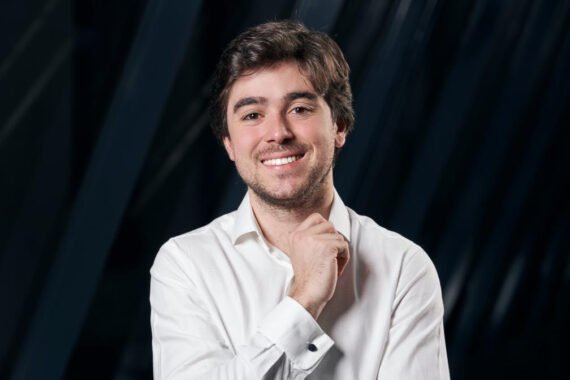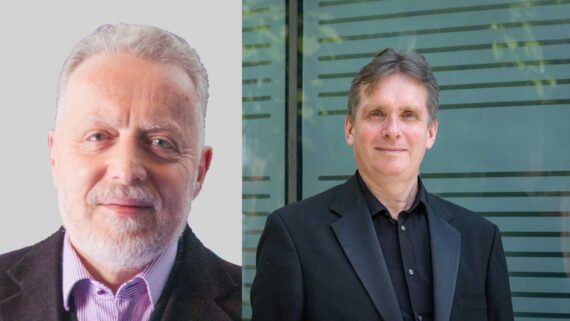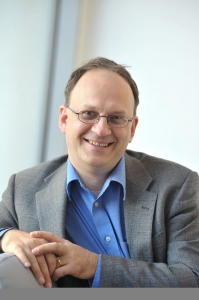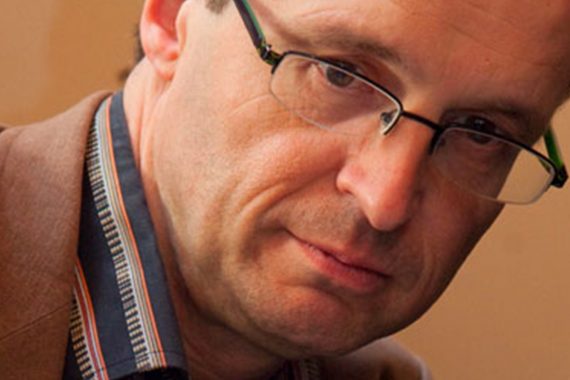Part of the Chetham’s International Piano Summer School 2024.
Between Thursday 8 – Saturday 17 August, Chetham’s International Piano Summer School brings world class and legendary musicians to a vibrant, supportive community in central Manchester. Alongside lectures, open lessons and opportunities to develop new skills, you can discover a daily programme of recitals from world-class performers.
One Day Eight, following our next Young Artist’s recital at 1.45pm, Paul Hindmarsh and Murray McLachlan take audiences through the life and works of Wilfred Heaton at 5.15pm. Graham Scott follows with a recital at 7pm, and the evening finishes with Ben Frith returning to the Stoller Hall for a performance at 8.30pm.
Seating for these events will be unallocated. If you have any access requirements, please do let us know at boxoffice@stollerhall.com or on 0333 130 0967 (lines open Tuesday – Thursday 1.30pm – 4pm). You can find out more about access in our building here. Our venue will be open half an hour before each public performance and will close in between performances.
Full Series Tickets
Book a full series ticket to attend all of the public concerts and lectures across full ten days the event for £332.50, or book for Week One (Thursday 8 – Monday 12 August) or Week Two (Tuesday 13 – Saturday 17 August) for £177.50.
DAY EIGHT PERFORMANCES
Pedro López Salas: A Young Artist’s Recital, 1.45 – 2.25pm

£5.50. FTE/U18 free
We are delighted to welcome Pedro to the course to give two solo recitals. In September Pedro will perform as one of the final 24 pianists selected for the Leeds International Piano Competition.
GUBAIDULINA Chaconne
BEETHOVEN Piano Concerto No 3 :Allegro, Largo, Rondo Allegro-Presto (accompanied by Henry Cash)
A Lecture and Recital by Paul Hindmarsh and Murray McLachlan, 5.15pm – 6pm

£11.50. FTE/U18 £5.50
Who was Wilfred Heaton? With Paul Hindmarsh and Murray McLachlan
Anyone who plays in a brass band around the world will tell you that Wilfred Heaton (1918-2000) was one of the finest and most original composers of band music of the 20th century. Several works have achieved ‘classic’ status – a march called Praise composed when he was 18 in 1937, Toccata (1939) and Contest Music (1973).
However, some years ago, while I was researching Heaton’s life and work, I was shown a pile of unpublished and unperformed manuscripts that revealed a treasure trove of music for brass, orchestra, piano and voices, including some experimental, highly original concert music from the early 1950s – a Partita for Orchestra (1950), Rhapsody for Oboe and Strings (1952), a major work for cornet (completed in 1990) and an epic 25-minute Piano Sonata, which he did not quite finish. I have spent much of the last 15 years editing this work and enabling performances. The task is completed with a performing edition of this major discovery for Heaton’s own instrument.
Wilfred Heaton was born in Sheffield into a Salvation Army family who lived in one of the city’s poorest districts, Park Hill. There was a lot of music in the family and his gifts were spotted early. One of his earliest pieces, a marching song, was published when he was 14.
However, the family was not able to support both his general education and his music studies. He left school at 14 and continued to study piano and composition privately while working as an apprentice brass instrument repairer. He played the cornet well, but the piano was his first love. He gained his LRAM (performance) diploma two days after his 18th birthday. Serving in th Second World War (as RAF ground crew) ended any thoughts of further education. Heaton never went to music college to further his pianistic and compositional ambitions.
After the war he endeavoured to complete his broader education through evening classes and a short period of study with a leading composition teacher of the 1950s, Mátyás Seiber. However, Heaton struggled to make much headway with his music and wrote very little new work for half his life. In 1963, he moved his family to Harrogate, which became the focus of a busy and successful career as a teacher and conductor.
The extent of Seiber’s influence can be heard in this epic Piano Sonata composed in the early 1950s – his fiery, temperamental language informed by contact with Hindemith, Bartok, and William Walton (a youthful obsession). The Sonata is in four substantial movements: a tightly organised sonata form Prelude, a muscular, helter-skelter Scherzo, an intense, introspective Lento and a brief, virtuoso finale.
The manuscript breaks off half-way through the finale. The pencil sketch is complete, however, and has been used as the basis for the performing edition.
Wilfred Heaton (1918-2000) – Piano Sonata (c. 1950-54)
Prelude – Scherzo – Lento – Finale. World Premiere
Graham Scott, 7pm

£22.50. FTE/U18s £5.50
SCHUMANN Kreisleriana Op.16
BEETHOVEN Sonata in A Flat Op.110
Ben Frith, 8.30pm

£22.50. FTE/U18s £5.50
SCARLATTI Keyboard Sonata in C, K. 132
Martin ELLERBY: 6 Andalusian Preludes Book 1
LISZT Sonata in B Minor

